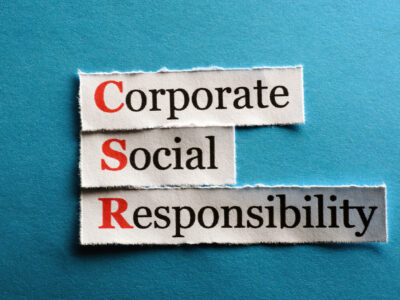
Regardless of your level of experience, fear can have a profound effect on the way you handle yourself professionally, often in ways you don’t even realize. This can negatively impact the way employees see you and your growth within the organization.
Simply being aware of this fear, however, can give you power over it—along with the ability to eliminate it: “Being aware of our fear and how we personally respond to it will help us combat its effect and power over us. It is not the presence of fear, but our response to fear (both as leaders and as individuals) that matters,” says Alli Worthington, COO for Propel Women.
Get those fears in check by correcting the following fear-based habits, which affect the way you manage and work with others within your organization.
1. You Can’t Accept Constructive Criticism
As a leader in the spotlight, your shortcomings will be highlighted far more than your successes, so it’s important to remember that constructive criticism is never a bad thing. Unfortunately, not only is it your job to show respect for others’ opinions, even if they’re critiquing your work, but this fear of criticism can lead to procrastination. Soon enough it’s causing you to be late on deadlines and becomes out of control.
Kick the habit: Take three deep breaths before responding to any criticism. This stops you from having the knee-jerk, defensive response.
2. You Don’t Praise Good Work
Fear of failing at your own job can make you refrain from bringing attention to those who are doing a good job. Yet, praise is an important part of a healthy office culture where people are happy and thrive.
The Carrot Principal proved the value of praise with a 10-year study of more than 200,000 employees. Research found that when managers are good at recognizing employees, there’s lower turnover (than with managers who aren’t good at it), the organization is more successful, and leaders are seen as more accountable and trustworthy.
Kick the habit: Set a goal to praise at least one person a day, in a group or one-on-one. The more you make it a habit, the easier it will be to keep doing. When you see the positive benefits, the fear-based habit will start to fade.
3. You Dread Making Decisions
If you get uneasy about making big decisions or delay them because of confusion, you’re letting fear of the unknown get the best of you. While the downside of being the boss is that you’re the one who gets in trouble if something goes south, it’s just a part of the job.
It’s tempting to delegate your decisions, simply because you don’t want to worry. Even the best leaders make poor decisions sometimes. How you feel about the decision you’ve made is often more important than the actual decision, so trust your intuition.
Kick the habit: Write a list of all the decisions you’ve made that have gone well. Then make a list of the ones that haven’t. Try to identify the difference between the good and the bad, and work to be better at making decisions. Use all of your successes as proof to yourself that you can in fact make good decisions for the organization.
4. You Don’t Think You Deserve to Be There
Imposter syndrome comes from feeling that you’ve managed to get yourself in a position that you don’t deserve. Most of the time, this feeling isn’t grounded on anything besides insecurity. It’s an insecurity we all feel at some point in our lives, but as a leader, it can cause you to hold back from doing your best. You may also start questioning your decisions, your management tactics and your ability to do the job correctly.
Kick the habit: But how do you shake the feeling that you don’t belong? There are plenty of ways to combat imposter syndrome, but one of the easiest is to rethink your language. Stop framing your sentences with “I might” and “I feel”. Instead, say “I have a question” or “I know”.
5. You Avoid Taking Risks
When a leader stops taking risks, it’s typically due to fear of failure. In fact, 31 percent of Americans cite fear of personal failure as their number one fear, according to Fighting Fear: The 7 Billon Dollar Price Tag.
As a leader, it’s your job to take smart risks. It’s expected that not every initiative you put into play and every new tactic you try will work—so don’t let that stop you from doing your job and inspiring others to do the same.
Kick the habit: Start making small decisions that are seen as riskier and resist the urge to delegate. Don’t hesitate to ask questions and get feedback—even as a leader, it’s important to ask questions, especially if you’re new to the job. Work on making larger risky decisions with peers until you’re ready to do that yourself.








